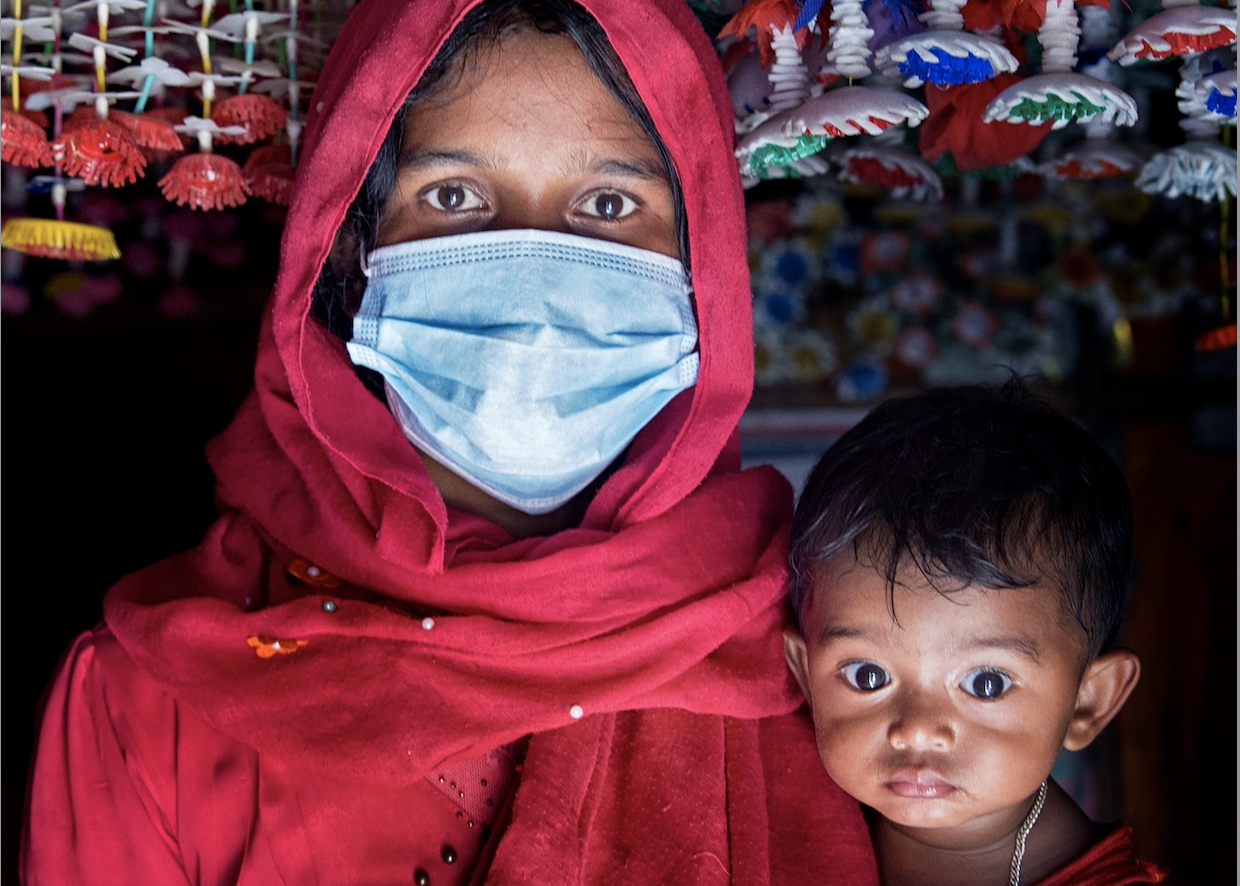The power of FinTech responding to the world’s worst humanitarian crises

Photo: Nur Jahan* and her daughter Ismat* (names changed to protect identity) live in the world’s largest refugee camp near Cox’s Bazar, Bangladesh. DEC funds have helped provide them and thousands of other Rohingya refugees with handwashing facilities and advice on how to stay safe from Covid-19. – Credit: Fabeha Monir/Oxfam
Article written by Huw Owen, External Relations Manager, Scotland for DEC – Disasters Emergency Committee
———————————————————————————————————————————-
When large-scale disasters hit countries without the capacity to respond, the DEC brings together 14 leading UK aid charities to raise funds quickly and efficiently.
In these times of crisis, people in life-and-death situations need our help and our mission is to save, protect and rebuild lives through effective humanitarian response.
Pooling our resources to work as one, we are pivotal in co-ordinating the UK public’s response to overseas disasters. In collaboration with our Rapid Response Network of national media and corporate partners, we raise the alarm to the UK public and set up easy ways to donate.
And we have immediate impact, getting aid to people who need it, fast.
Our current Coronavirus Appeal is funding work in eight countries – Afghanistan, Bangladesh, DR Congo, India, Somalia, South Sudan, Syria and Yemen. This includes six of the world’s most fragile states, the Rohingya refugee camps in Bangladesh, and India, which was hit by the worst outbreak of Covid-19 yet seen during the pandemic in April and May 2021.
Millions of people living in fragile states have little access to medical care or clean water, making them much more vulnerable to new, more contagious variants of coronavirus.
But in many countries the economic effects of the pandemic could be even more deadly than the virus itself as millions of people are pushed towards famine due to falling incomes and rising food prices. Hunger can be particularly devastating for children, leading to malnutrition which in the worst cases can be fatal.
The DEC is focused on
- supporting fragile health systems with PPE, equipment, and isolation and medical care facilities
- helping to give vulnerable families the means to protect themselves with water, soap, handwashing stations and information
- ensuring that the Covid-19 crisis doesn’t mean people go hungry and children become malnourished.
The UK banking and FinTech sector has had a big impact on the success of this appeal. There are several actions that corporate partners can take in support of DEC Appeals, but probably the most powerful by far is a combination of what we call “Amplify” – getting the word out to customers, clients and the public at large; and “Experience” – creating innovative new donation channels for the appeal. This combination of Amplify X Experience has delivered incredible results by raising millions of pounds in vital humanitarian aid for the people who need it most. Here are some examples of successful partnerships in this space:
The NatWest Group introduced a notification within its banking apps, prompting users to donate to the DEC Coronavirus Appeal, with incredible results.
The notification was live between October 2020 and January 2021 in the NatWest and Royal Bank apps, and raised an incredible £356,000 for the appeal. It went live again when the DEC extended its appeal to include India as a devastating surge of coronavirus overwhelmed the country, raising an additional £225,421 for India over three months.
Revolut also featured the DEC Appeal in their app ”“ Revolut has a dedicated Donations section, where over 30,000 Revolut customers have donated £262,000 to the DEC Coronavirus Appeal for India.
The DEC’s collaboration with PayPal Giving Fund has helped raise millions of pounds to benefit our appeals: in the 2019 DEC Cyclone Idai Appeal an incredible £1,320,000 was raised for emergency response, as strong winds and widespread flooding ripped apart roads, bridges, houses, schools, and health facilities and submerged vast swathes of agricultural land. Across Mozambique, Malawi and Zimbabwe, at least 900 people were killed and around three million were left in desperate need of humanitarian assistance.
PayPal amplify DEC appeals by sending email communication out to all opted-in PayPal customers at appeal launch. PayPal helps improve supporter experience by creating dedicated fundraising pages and using their “Give at Checkout” initiative. With this simple yet incredibly effective action, almost £1,000,000 was raised to benefit the DEC Coronavirus Appeal.
You can help us to build on these partnerships, harnessing the significant outpouring of concern and generosity that the UK public shows in the face of the world’s worst humanitarian crises.
Get in touch with the team at partnerships@dec.org.uk, we’d love to hear from you and explore how your FinTech can be a part of the UK’s life-saving response to international disasters.



